- The Last of the Mohicans (1992)
- Dances With Wolves (1990)
- Powwow Highway (1989)
- The Emerald Forest (1985)
- Squanto: A Warrior's Tale (1994)
- Kings of the Sun (1963)
- The Mission (1986)
- Thunderheart (1992)
- Ulzana's Raid (1972)
- Son of the Morning Star (1991)
- Last of the Dogmen (1995)
- Running Brave (1983)
 Full of action and war, The Last of the Mohicans is a unique masterpiece with a love story to boot. Although
it's the best Daniel Day-Lewis movie, the best Michael Mann movie, the best American Indian movie, and the best
Colonial movie, nothing is more impressive than Wes Studi's performance as Magua. It's so good that he was sadly
robbed of an Oscar. Of course, the title says it all.
Full of action and war, The Last of the Mohicans is a unique masterpiece with a love story to boot. Although
it's the best Daniel Day-Lewis movie, the best Michael Mann movie, the best American Indian movie, and the best
Colonial movie, nothing is more impressive than Wes Studi's performance as Magua. It's so good that he was sadly
robbed of an Oscar. Of course, the title says it all.
 What I love is the simplicity that's left open for translation. Easily the best part is how Dunbar is immersed
into the Sioux culture. Near the end, his fellow soldiers show up. Dunbar takes place among them, but he looks
out of place. Hence, it's the key moment of Dances With Wolves which is about human acceptance without bias.
Not to be missed is the lush cinematography, and the buffalo hunt scene is terrific. Graham Greene and Rodney A.
Grant turn in powerful performances.
What I love is the simplicity that's left open for translation. Easily the best part is how Dunbar is immersed
into the Sioux culture. Near the end, his fellow soldiers show up. Dunbar takes place among them, but he looks
out of place. Hence, it's the key moment of Dances With Wolves which is about human acceptance without bias.
Not to be missed is the lush cinematography, and the buffalo hunt scene is terrific. Graham Greene and Rodney A.
Grant turn in powerful performances.
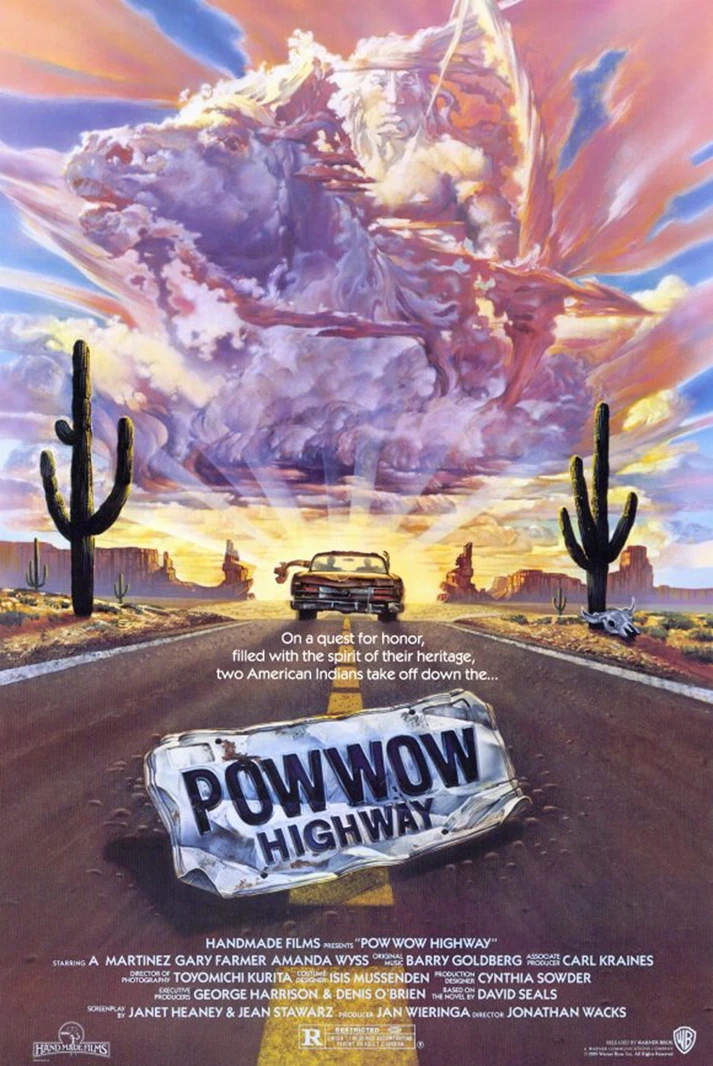 When it comes to the core of American Indian movies, people tend to think of Dances With Wolves,
The Last of the Mohicans, and Little Big Man, but a fourth one is missing: Powwow Highway.
Gary Farmer makes the strongest case why he got robbed of an Oscar nomination for Best Actor. Without him,
there's no movie, period, just like John Candy for Planes, Trains & Automobiles. In the meantime, four
guys ended up in Dances With Wolves the following year with significant roles: Graham Greene, Rodney A.
Grant, Wes Studi, and Floyd "Red Crow" Westerman.
When it comes to the core of American Indian movies, people tend to think of Dances With Wolves,
The Last of the Mohicans, and Little Big Man, but a fourth one is missing: Powwow Highway.
Gary Farmer makes the strongest case why he got robbed of an Oscar nomination for Best Actor. Without him,
there's no movie, period, just like John Candy for Planes, Trains & Automobiles. In the meantime, four
guys ended up in Dances With Wolves the following year with significant roles: Graham Greene, Rodney A.
Grant, Wes Studi, and Floyd "Red Crow" Westerman.
 Making an ecological statement, The Emerald Forest is the South American version of
A Cry in the Dark. Instead of a dingo, it's the Invisible People who took the kid. The incident happened
because the builders were tearing down the Amazon rainforest. Cause and effect...it makes perfect sense. At least,
Bill Markham has come to accept what has happened and agrees that Tommy belongs in the native culture since he
has been immersed there for ten years, leaving behind his old life.
Making an ecological statement, The Emerald Forest is the South American version of
A Cry in the Dark. Instead of a dingo, it's the Invisible People who took the kid. The incident happened
because the builders were tearing down the Amazon rainforest. Cause and effect...it makes perfect sense. At least,
Bill Markham has come to accept what has happened and agrees that Tommy belongs in the native culture since he
has been immersed there for ten years, leaving behind his old life.
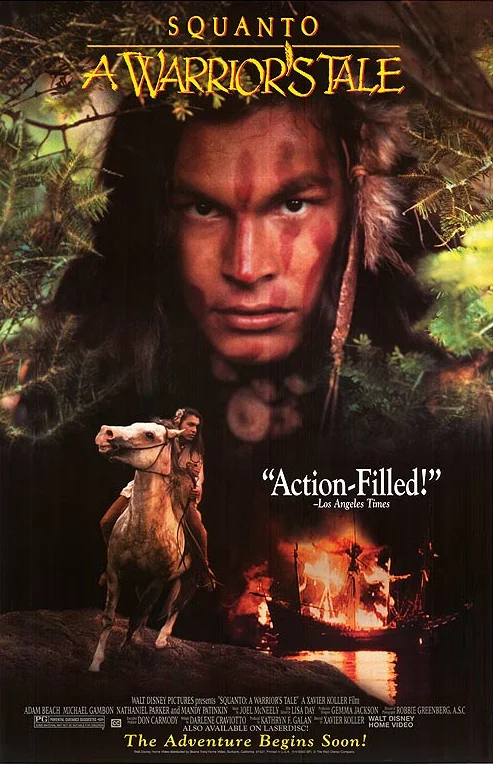 Squanto: A Warrior's Tale can be regarded as a lightweight Native American film when compared with
Dances With Wolves and The Last of the Mohicans. Eric Schweig and Adam Beach do a good job of
trying to make it work. If I had a choice between this and any 30's to 50's picture involving American Indians,
I'm going with the former because it moves well, has nice costumes, and isn't objectionable in any way.
Squanto: A Warrior's Tale can be regarded as a lightweight Native American film when compared with
Dances With Wolves and The Last of the Mohicans. Eric Schweig and Adam Beach do a good job of
trying to make it work. If I had a choice between this and any 30's to 50's picture involving American Indians,
I'm going with the former because it moves well, has nice costumes, and isn't objectionable in any way.
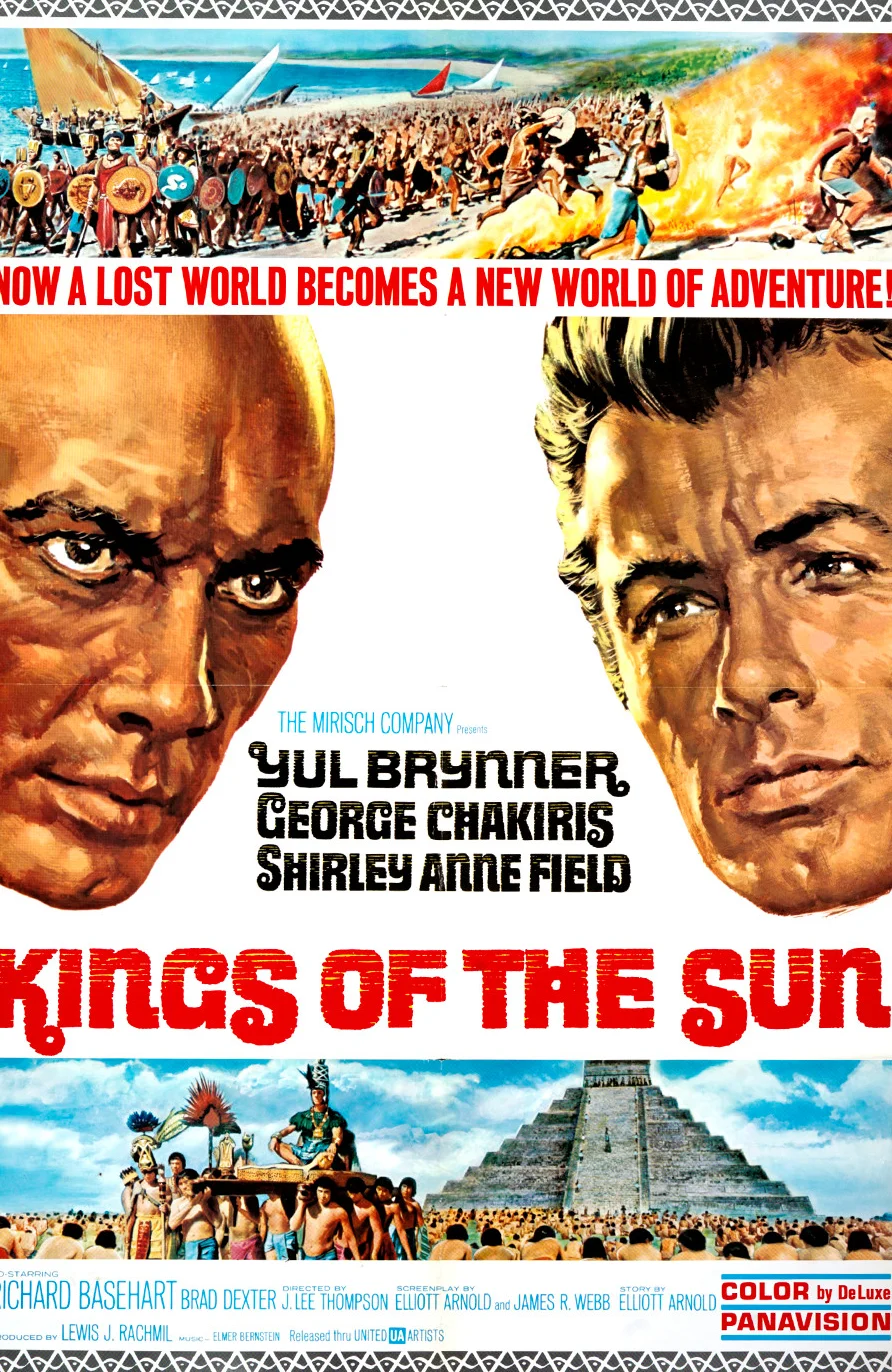 I'm against the idea of a white thespian who's brownfaced to play a foreign character. But, based on the strength
of Yul Brynner's acting, I'm going to let it slide. The truth is: without star power, Kings of the Sun
would've never been made. It may be the only Hollywood film about the Mayans which is saying something. The nice
part is the sight of Chichén Itzá which is the real thing.
I'm against the idea of a white thespian who's brownfaced to play a foreign character. But, based on the strength
of Yul Brynner's acting, I'm going to let it slide. The truth is: without star power, Kings of the Sun
would've never been made. It may be the only Hollywood film about the Mayans which is saying something. The nice
part is the sight of Chichén Itzá which is the real thing.
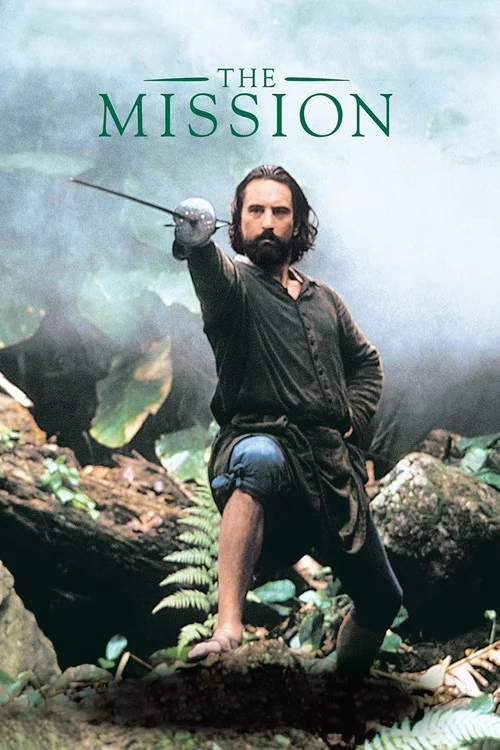 The Mission is a powerful film about the plight of the Guaraní people under the heel of Portuguese and
Spanish colonizers. The reality is underscored by the loss of their homes because the Portuguese and Spanish
viewed the land as an imperialistic opportunity to expand their empire while harvesting it for resources, most
especially gold. There's a display of concern by the Jesuits, wanting to save them from a predictable wipeout
of their culture and habitat.
The Mission is a powerful film about the plight of the Guaraní people under the heel of Portuguese and
Spanish colonizers. The reality is underscored by the loss of their homes because the Portuguese and Spanish
viewed the land as an imperialistic opportunity to expand their empire while harvesting it for resources, most
especially gold. There's a display of concern by the Jesuits, wanting to save them from a predictable wipeout
of their culture and habitat.
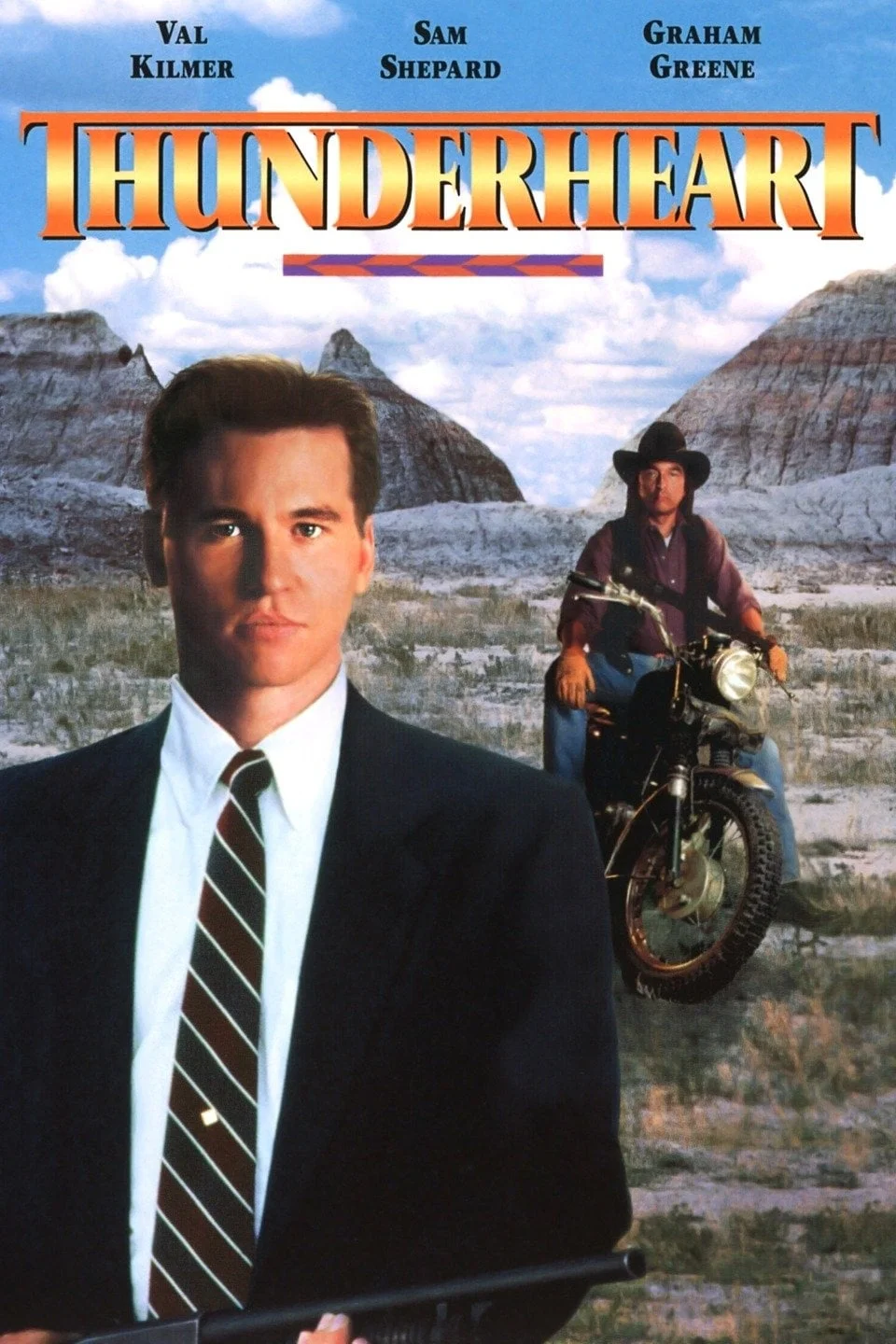 Despite being laden with American Indian clichés, Thunderheart isn't bad for a murder mystery picture
that happens to take place on a reservation. Val Kilmer is terrific for a white character with supposedly Indian
blood, and Graham Greene makes for an interesting guide. Shot on location in Badlands National Park and Pine
Ridge Reservation, South Dakota, the cinematography is top-notch.
Despite being laden with American Indian clichés, Thunderheart isn't bad for a murder mystery picture
that happens to take place on a reservation. Val Kilmer is terrific for a white character with supposedly Indian
blood, and Graham Greene makes for an interesting guide. Shot on location in Badlands National Park and Pine
Ridge Reservation, South Dakota, the cinematography is top-notch.
 Like The Wild Bunch and The Hunting Party, Ulzana's Raid is a brutal Western picture.
Believe it or not, the fighting between the US Army and various Apache nations in the southwest from 1849 to
1886 is the longest war ever in U.S. history which ended with the surrender of Geronimo. The brutality shown
by the Apaches did happen for real. Burt Lancaster gives a brilliant performance as a world-weary scout who
has seen it all.
Like The Wild Bunch and The Hunting Party, Ulzana's Raid is a brutal Western picture.
Believe it or not, the fighting between the US Army and various Apache nations in the southwest from 1849 to
1886 is the longest war ever in U.S. history which ended with the surrender of Geronimo. The brutality shown
by the Apaches did happen for real. Burt Lancaster gives a brilliant performance as a world-weary scout who
has seen it all.
 Son of the Morning Star is a dramatic improvement over Custer of the West by getting nearly
everything correct. Not only that, the story is told from two points of view: Custer's wife and a Cheyenne
woman named Kate Bighead aka Antelope. Dances With Wolves' Rodney E. Grant appears as Crazy Horse along
with other authentic Indians which are 150 in all. The film was shot on location in Badlands
National Park and Buffalo Gap, South Dakota.
Son of the Morning Star is a dramatic improvement over Custer of the West by getting nearly
everything correct. Not only that, the story is told from two points of view: Custer's wife and a Cheyenne
woman named Kate Bighead aka Antelope. Dances With Wolves' Rodney E. Grant appears as Crazy Horse along
with other authentic Indians which are 150 in all. The film was shot on location in Badlands
National Park and Buffalo Gap, South Dakota.
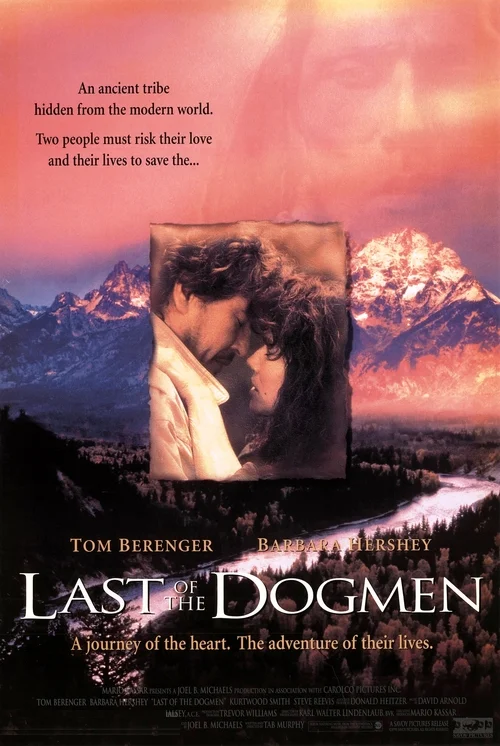 One of the better movies in Tom Berenger's oeuvre is Last of the Dogmen.
It has a good story with fantastic cinematography of Montana which was unfortunately shot on location in Alberta
and British Columbia, Canada, and Mexico. This time, it's not inundated with American Indian clichés. In other
words, they just get on with the show like The Last of the Mohicans.
One of the better movies in Tom Berenger's oeuvre is Last of the Dogmen.
It has a good story with fantastic cinematography of Montana which was unfortunately shot on location in Alberta
and British Columbia, Canada, and Mexico. This time, it's not inundated with American Indian clichés. In other
words, they just get on with the show like The Last of the Mohicans.
 Long forgotten and probably never recognized to begin with, Billy Mills shocked everybody by winning the gold
medal in the 10,000 meters at the 1964 Olympiad Games in Tokyo, Japan. An American Indian, he was considered a
long shot by not establishing himself as a contender on the world stage.
Long forgotten and probably never recognized to begin with, Billy Mills shocked everybody by winning the gold
medal in the 10,000 meters at the 1964 Olympiad Games in Tokyo, Japan. An American Indian, he was considered a
long shot by not establishing himself as a contender on the world stage.